Money is a strong influence in our lives, influencing our decisions, ambitions, and even our happiness. Our financial relationships can be defining aspects of our lives, shaping our lifestyles and aspirations. Do we have control over money, or does money have control over us? Are we pursuing wealth, or is wealth pursuing us? Money is it a tool, a fruit, or a seed? Is it intrinsically good or bad? These are profound questions that necessitate introspection in order to truly comprehend our attitudes, behaviors, and perceptions toward money. Let us reflect on these questions and provide insights into how your money mindset can affect your financial situation.
1. Does money control you, or do you control money?

To truly control our finances, we must first take charge of them. This entails managing income and expenses responsibly. Setting budgets, tracking expenses, and understanding where our money is going are all part of it. When we take the time to wisely manage our finances, we begin to build a framework within which we can exert control over our financial resources.
Making informed decisions is also an important aspect of money management. This includes educating ourselves on financial topics such as investments, savings accounts, and even debt management. With knowledge comes the ability to make decisions that are in line with our long-term financial goals. It enables us to choose investment opportunities that will increase our wealth over time or to make decisions about saving for future expenses such as retirement.

Another important aspect of gaining financial control is prioritizing long-term financial goals. When we know what we want to accomplish in the future, whether it’s buying a home, starting a business, or ensuring a comfortable retirement, we can allocate our resources accordingly. By putting money aside for savings and investments, we are essentially telling money where it should go and what purpose it should serve.
Essentially, controlling money means taking charge of your financial journey. It is about steering your financial ship in the desired direction rather than allowing it to drift aimlessly or be carried away by the currents of impulse spending and short-term desires. By responsibly managing your finances, gaining financial knowledge, and aligning your financial decisions with your long-term goals, you can transform money from a dominating force into a useful tool that propels you toward financial success and fulfillment. Money eventually becomes a servant, and you become the master of your financial destiny.
Constantly chasing after money can be a dangerous endeavor, resulting in increased stress and, eventually, burnout. This relentless pursuit of wealth can lead to individuals becoming slaves to their financial goals, foregoing other aspects of life that are equally, if not more, valuable. The consequences of this approach can include deteriorating physical and mental health, strained relationships, and a sense of emptiness despite accumulating wealth.
There is, however, a more balanced and long-term approach to achieving financial success without succumbing to the relentless pursuit. It all starts with a change in perspective and priorities. Instead of focusing solely on the accumulation of money, consider personal development as a means to financial prosperity. This entails investing in yourself, both in terms of learning new skills and nurturing your personal growth.
Focusing on personal development allows you to become a more versatile and capable individual. As a result, you become a more appealing prospect to employers, clients, or business partners, increasing your earning potential. Furthermore, personal development goes beyond financial gains to enrich your life on multiple levels, including boosting self-esteem, providing a sense of purpose, and cultivating resilience in the face of adversity.
Aside from personal development, actively seek opportunities to add value in your chosen field or industry. Rather than chasing money, focus your efforts on developing innovative solutions, providing exceptional service, or developing products that meet genuine needs. When you make a genuine contribution to your field, you attract opportunities and financial rewards.

Being proactive and strategic when it comes to financial success is essential. This includes networking, developing a strong professional reputation, and staying current on industry trends. . When you become a recognized authority in your field, you naturally attract financial opportunities as others seek out your expertise and are willing to reward you accordingly.
In essence, the approach is not about chasing money, but about making money come to you through your growth and value creation. This shift in focus can alleviate the stress and anxiety associated with a relentless pursuit of wealth. It enables you to strike a better work-life balance, care for your health, and cultivate more meaningful relationships.
It’s crucial to recognize that the pursuit of financial success doesn’t have to be a frantic quest. Instead, it can be a deliberate journey of personal development and value creation.
. By focusing on self-improvement, acquiring skills, and creating opportunities, you can position yourself for financial success without sacrificing your overall well-being. By doing this, you will not only achieve your financial goals, but also live a fuller, more balanced life. tus nec ullamcorper mattis, pulvinar dapibus leo.

Seeing money as a fruit or a seed represents two distinct ways of approaching and utilizing our financial resources. These metaphors provide useful insights into our financial habits and attitudes.
When we think of money as a “fruit,” we prioritize immediate gratification. We may be tempted to spend our money on immediate pleasures and desires, similar to plucking ripe fruit from a tree and enjoying it right away. This approach can lead to a consumerist lifestyle in which we prioritize short-term pleasures over long-term goals. While it is important to enjoy the fruits of our labor and occasionally treat ourselves, relying solely on this perspective can leave us financially vulnerable in the long run. It’s like eating all of a tree’s fruits without planting new seeds for future harvests.

Here’s how you can put this concept into practice:
Budget Wisely: Set aside a portion of your earnings for immediate expenses, entertainment, and personal luxuries. This is analogous to taking pleasure in the “fruits” of your labor.
Invest and save
Emergency Reserve FundLong-Term Objectives
Examine and Make Changes
In essence, the fruit and seed analogy reminds us that financial well-being does not entail sacrificing the present for an uncertain future, nor does it entail indulging in the moment without regard for the future. It is about striking a balance that allows us to enjoy life’s pleasures while also ensuring our financial stability and growth. We can look forward to a bountiful financial harvest in the years ahead by planting the right seeds today.
Money is frequently viewed as a two-edged sword, capable of enormous good as well as significant harm. However, it is critical to understand that money is, in essence, neutral. Its moral character is not inherent; rather, it reflects the values, intentions, and actions of those who wield it. In this narrative, we will delve deeper into the idea that money is a tool that, when used responsibly, has the potential to be a force for good.
Money is, first and foremost, a medium of exchange, a means of facilitating transactions in our complex modern society. It is essentially a tool, like a hammer or a computer. Money’s impact is determined by how it is used, just as a hammer can be used to build a shelter or harm someone, and a computer can be used to educate or deceive.
When we consider how we acquire, allocate, and use money, the moral dimension emerges. Our values and intentions are revealed through our choices. Money can be made through hard work, entrepreneurship, or investments in profitable businesses. It can also be obtained through unethical means such as fraud, exploitation, or dishonesty. However, you must be prepared to spend significant time in prison for such acts.


How money is used is the critical point at which it takes on a moral character. Individuals and organizations have the ability to shape the world through their financial decisions. Using money to help others, whether through charitable donations, community initiatives, or assisting friends and family in need, is an example of its positive potential.
Money can also be a powerful tool for achieving personal goals that lead to personal growth and fulfillment. It can fund education, allowing people to gain knowledge and skills that will improve their lives and make a positive contribution to society. Money can also be used to travel, experience different cultures, and broaden one’s horizons, allowing one to gain a better understanding of the world and its people.










